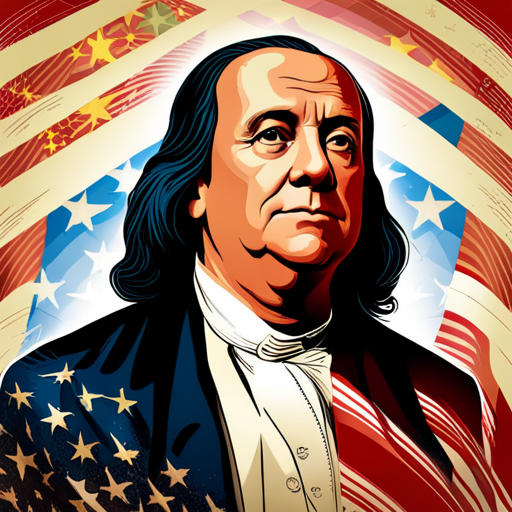Autobiography of Benjamin Franklin
Early Life and Education
My name is Benjamin Franklin, and I was born in Boston, Massachusetts, on January 17, 1706, as one of 17 children. My father, Josiah Franklin, was a soap and candle maker. I only had two years of formal education, but my love for books and learning led me to educate myself. I worked in my father’s business before becoming an apprentice to my brother James, a printer, when I was 12.
Founding the Pennsylvania Gazette and Poor Richard’s Almanack
Seeking greater independence, I ran away to Philadelphia at the age of 17. I worked in several printing houses before I was able to set up my own printing business in 1728. In 1729, I purchased The Pennsylvania Gazette, and it soon became one of the most successful newspapers in the colonies. In 1733, I began publishing Poor Richard’s Almanack under the pseudonym Richard Saunders, which became popular for its witty sayings and practical wisdom.
Public Projects and Civic Duty
I’ve always had a passion for community service. I helped establish Philadelphia’s first subscription library, the Library Company, in 1731. Subsequently, I worked on numerous public projects, including the establishment of the University of Pennsylvania and the Pennsylvania Hospital. I organized the Philadelphia Union Fire Company to fight fires and proposed the creation of a night watch and a paid police force for the city.
Scientific and Inventive Achievements
During the 1740s, I became fascinated with science and inventions. I’m most known for my experiments with electricity, most notably my famous kite experiment demonstrating that lightning and electricity were the same. I invented the lightning rod, bifocal glasses, and the Franklin stove, among other things.
Political Career and the American Revolution
I served as the Postmaster General for the colonies before the American Revolution, improving the postal system significantly. I was a delegate for Pennsylvania to the Albany Congress in 1754, and in 1775, the Second Continental Congress, where I was part of the committee that drafted the U.S. Declaration of Independence.
During the Revolutionary War, I served as the U.S. Ambassador to France, and my efforts helped secure the Treaty of Paris in 1783, which officially ended the war and recognized American independence.
Later Life and Legacy
After the war, I returned to America and was elected President of the Executive Council of Pennsylvania. I was also a delegate to the Constitutional Convention and an ardent supporter of the U.S. Constitution.
I passed away on April 17, 1790, in Philadelphia. My life spanned a period of immense change and growth for America. I am grateful for the opportunity to have contributed to the shaping of our nation in its early years. My life was a testament to the potential of hard work, a curious mind, and a public-spirited heart.
Show more +
